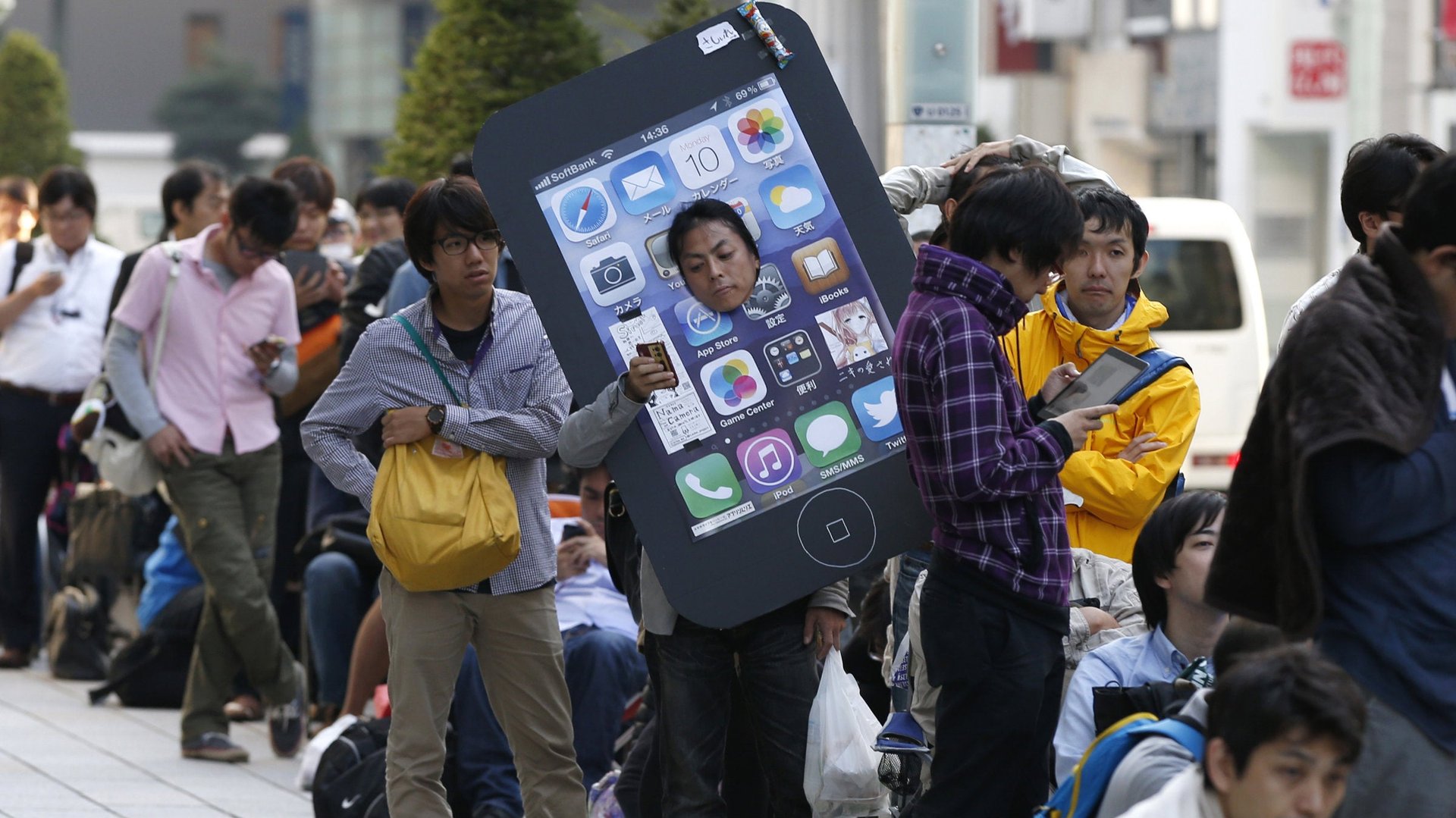The world’s most popular smartphone is also a huge headache for mobile operators
NTT Docomo, Japan’s biggest mobile operator, hoped it would win a bigger market share when it finally started offering its subscribers the iPhone last September. And it did. But the iPhone is also battering the company’s bottom line. Docomo said this morning that its full year forecast may be hurt by a price war with rivals Softbank and KDDI, and heavy discounting of the iPhone.


NTT Docomo, Japan’s biggest mobile operator, hoped it would win a bigger market share when it finally started offering its subscribers the iPhone last September. And it did. But the iPhone is also battering the company’s bottom line. Docomo said this morning that its full year forecast may be hurt by a price war with rivals Softbank and KDDI, and heavy discounting of the iPhone.
Docomo had delayed rolling out the iPhone—years after its smaller rivals—because it feared that Apple’s iTunes Store might hurt its own online music and video store, dmarket. Docomo relented once it became clear that this decision was losing it new customers to its rivals. In August, KDDI and Softbank together added 10 times as many new subscribers as Docomo did. The iPhone turned the tide. By December, Docomo was once again adding subscribers faster than anyone, thanks to discounts on the new phone.
But the success came at a price. Softbank and KDDI responded by offering sharper discounts. “Competition got extremely tough in February and March,” Credit Suisse analyst Hitoshi Hayakawa told Bloomberg, predicting that Docomo is unlikely to ease up on the discounting as it tries to woo new customers, even at the cost of not meeting earnings targets. Indeed, Docomo has little choice. The iPhone is wildly popular; it made up three out of every four smartphones sold in Japan in October last year, the first full month after Docomo started carrying it.
Japan’s carriers are not the first to find themselves in this unwelcome position. But they might take solace from other countries, where the battle for customers has abated, and with it the self-defeating policy of subsidies. They could look across the water to China. When the new iPhone 5S came out in September, China Telecom cut its iPhone subsidies by 15%, thus reducing the pressure on China Mobile, the world’s biggest operator, which began offering iPhones only two months ago.
American networks too are changing. They have long complained about the burden of subsidizing the phone. The more iPhones they sell, the smaller their margins get. In 2012, soon after Sprint started selling the iPhone, it posted a loss of $1.3 billion, thanks in part to subsidy expenses. But T-Mobile stopped offering subsidies last year and AT&T soon followed, offering discounts on cell service if customers buy their own devices.